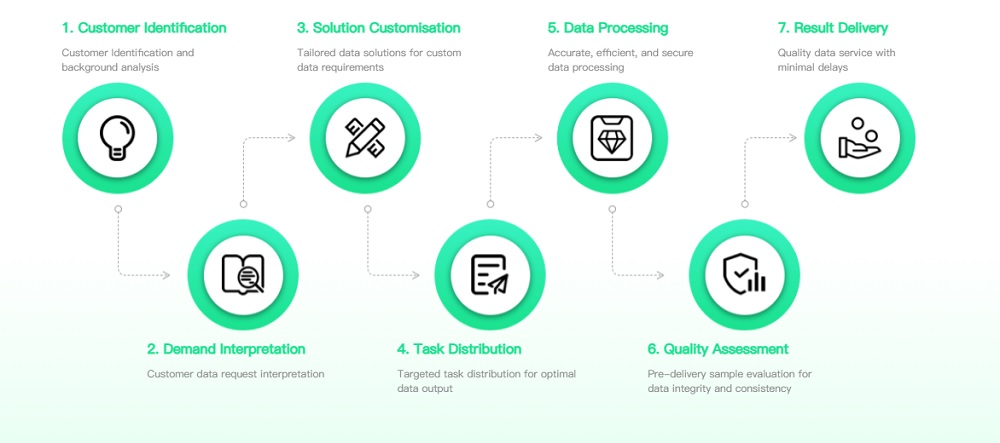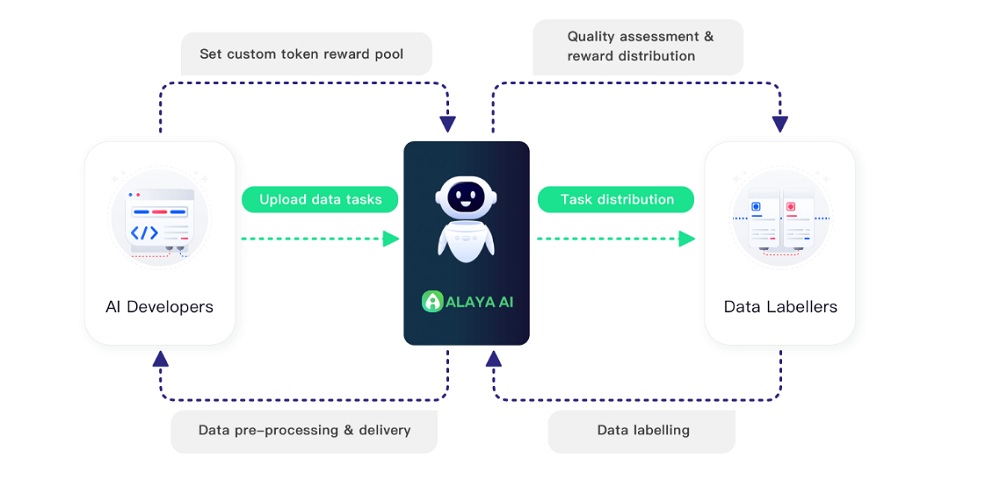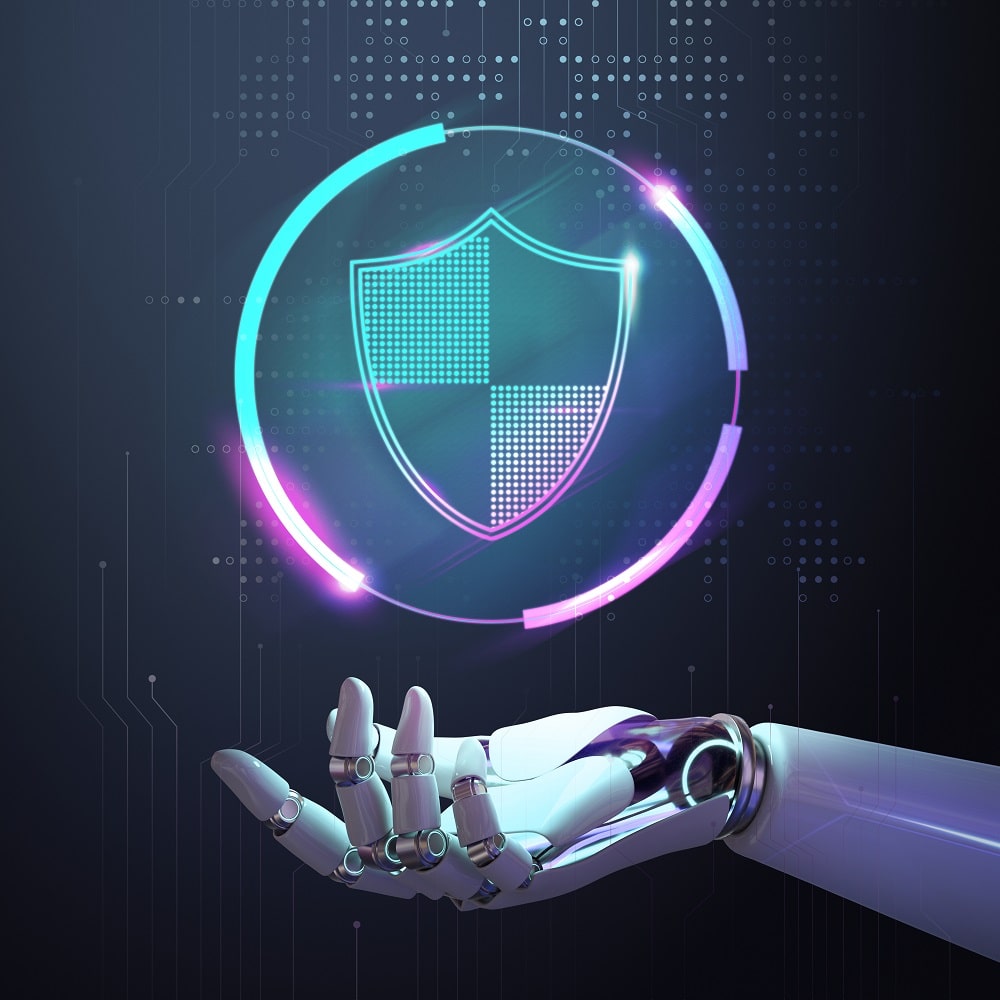The world runs on data. From the apps we scroll through to the recommendations we receive, data fuels everything. But here’s the catch most of it is controlled by a handful of tech giants. In the ever-evolving landscape of artificial intelligence, one name is generating a lot of buzz lately: Alaya AI. From tech enthusiasts to blockchain innovators, people are asking: What exactly is Alaya AI, and why is it suddenly everywhere? Whether you’re a casual observer or a seasoned developer, understanding what Alaya AI is doing differently could give you a front-row seat to the next big technological revolution.
Enter Alaya AI, a groundbreaking open Web3 AI data platform that is transforming the AI sector to flips the script by decentralizing data collection, labeling, and monetization. If you’re wondering how that works and why it matters, you’re in the right place.
Table of Contents
- 1 Understanding the Core of Alaya AI
- 2 Benefits of Using Alaya AI
- 3 The Role of Gamification in Alaya AI
- 4 Alaya’s NFT System for Task Advancement
- 5 Alaya AI and Web3: A Natural Fit
- 6 Use Cases of Alaya AI
- 7 Comparison with Traditional Data Platforms
- 8 Challenges and Limitations
- 9 Roadmap and Future Vision
- 10 How to Get Started with Alaya AI
- 11 Conclusion: What Alaya AI Means for the Future
- 12 FAQs
Understanding the Core of Alaya AI
How Alaya AI Works
At its core, Alaya AI is a decentralized data platform powered by blockchain and artificial intelligence. It connects individuals and organizations, allowing them to share, label, and access data in a secure and transparent way. Users contribute data, validate information, and get rewarded with native tokens all without giving up control of their personal information. The goal? To create an open, fair, and user-governed ecosystem for AI development. It aims to democratize access to quality data the lifeblood of AI by letting real people, not corporations, drive its growth.
Alaya AI uses multiple cutting-edge technologies:
- Artificial Intelligence: Used to verify, collect, and utilize crowdsourced data.
- Blockchain: Ensures data transparency, ownership, and secure token-based transactions.
- Decentralized Data Economy: Empowers individuals to participate in and benefit from data ecosystems.
This powerful triplet enables fair compensation, tamper-proof data records, and automated validation at scale.
Benefits of Using Alaya AI
One of the biggest challenges in AI development today is data scarcity and quality. High-quality, labeled datasets are expensive and time-consuming to collect. Additionally, many organizations rely on centralized platforms that often exploit user data without consent or reward. While using Alaya AI it becomes beneficial for users to overcome these challenges.

Democratized Access to AI
You no longer need to be Google to build smart AI. Alaya gives equal access to quality data, leveling the playing field for startups and developers.
Cost Efficiency
With automation, decentralization, and crowd participation, Alaya cuts the costs of data collection and labeling.
Enhanced Data Accuracy
Crowdsourced data, validated by the community, often surpasses what’s produced in traditional setups. It’s like Wikipedia, but for datasets.
The Role of Gamification in Alaya AI
One of the more engaging aspects of this platform is its use of gamification. Users aren’t just completing tasks they’re engaging in missions, competing on leaderboards, and unlocking achievements. This element keeps contributors motivated, ensuring ongoing participation and high-quality data.
Gamification also lowers the entry barrier, allowing anyone from students to professionals to participate and benefit.
Alaya’s NFT System for Task Advancement
Alaya AI uses an NFT system to enhance task advancement by assigning unique digital assets to users’ contributions. Each task completed such as data labeling or validation is recorded and rewarded with NFTs that represent the user’s work quality and activity. These NFTs serve not only as proof of contribution but also unlock access to higher-level tasks, rewards, or participation in governance. This system encourages consistent, high-quality input by turning user achievements into valuable, tradable assets within the Alaya ecosystem.
Alaya AI and Web3: A Natural Fit

In the Web3 universe, decentralization and user empowerment are central themes. Alaya AI fits perfectly into this narrative. By leveraging smart contracts and decentralized governance, Alaya lets users control their data, decide who gets access, and earn tokens without relying on big tech brokers.
Use Cases of Alaya AI
The possibilities are massive. Here are just a few industries where Alaya AI can make a difference:
Healthcare: Train AI to detect diseases early using unidentifiedpatient data collected ethically and with consent.
Finance: Improve fraud detection models with real-time, user-contributed transaction patterns.
Marketing and Advertising: Build better personalization engines using diverse behavioral data without compromising user privacy.
Smart Cities and IoT: Sensors in smart homes and cities can contribute to data pools, enhancing urban planning and resource management.
Autonomous Vehicles: High-quality street image labeling for navigation systems.
Education: Collect personalized learning materials using AI feedback.
Comparison with Traditional Data Platforms
Traditional data platforms rely heavily on manual data collection, centralized storage, and predefined structures, which can limit scalability and adaptability. In contrast, Alaya AI leverages decentralized data collaboration and artificial intelligence to automate data labeling, improve accuracy, and enable real-time insights. While traditional platforms often struggle with data silos and inefficiencies, Alaya AI promote dynamic data sharing and continuous learning, making it more agile and efficient for modern data-driven applications.
Challenges and Limitations
Scalability Issues
Managing millions of contributors and validators is no small achievement. As the network grows, so do the demands on infrastructure.
Adoption Barriers
Like any troublesome tech, getting people to switch from old habits to decentralized systems takes time and education.
Data Quality Management
Crowdsourcing has risks false data, spam, or malicious actors. Thankfully, Alaya’s validation mechanisms and smart contracts work to filter out the noise.
Roadmap and Future Vision
Alaya AI is just getting started. Future developments include:
- AI model sharing and training services
- On-chain reputation scoring
- DAO-based governance upgrades
The team is also exploring cross-chain compatibility and collaborations with other decentralized AI initiatives. Alaya AI isn’t building in a vacuum. The project has already partnered with universities, research labs, and blockchain infrastructure providers to accelerate its mission.
How to Get Started with Alaya AI
- Sign up on the Alaya platform.
- Choose your role contributor, validator, or consumer.
- Connect your wallet to start earning or spending ALA tokens.
- Join the community forums and DAO discussions to have your say.
After creating an account on the Alaya AI platform, users can easily navigate through a user-friendly dashboard to join tasks, contribute data, and earn rewards. The platform guides users with clear menus for task management, wallet connection, and NFT interactions.
Alaya AI features a dual-NFT design: Soulbound NFTs track user identity and achievements, while Medallion NFTs represent specific contributions and can be upgraded. This system ensures secure, personalized participation and transparent recognition of user efforts.
Conclusion: What Alaya AI Means for the Future
Alaya AI is more than a buzzword it’s a blueprint for the future of artificial intelligence. By combining crowdsourced data, gamification, and blockchain, it’s democratizing the way we train AI systems. No longer do you need to be a data giant to contribute to or benefit from the AI revolution.
Whether you’re looking to earn from your knowledge, build better AI, or simply be part of the next digital frontier, Alaya AI offers an open invitation to participate in shaping tomorrow’s intelligence.
So, the next time you hear someone talking about this AI data platform, you’ll know exactly why and you might even want to join the conversation yourself.
FAQs
1. What is Alaya AI used for?
Alaya AI is a decentralized platform for collecting, labeling, and sharing data used to train AI models.
2. Is Alaya AI secure?
Yes, it uses blockchain and smart contracts to ensure transparency and data security.
3. How can I earn with Alaya AI?
You can earn ALA tokens by contributing data, labeling content, and validating information.
4. Can businesses use Alaya AI?
Absolutely. Businesses can access diverse, labeled datasets to improve their AI solutions.
5. What makes Alaya different?
Unlike traditional platforms, Alaya is decentralized, privacy-focused, and user-governed, giving control and rewards back to the people.

